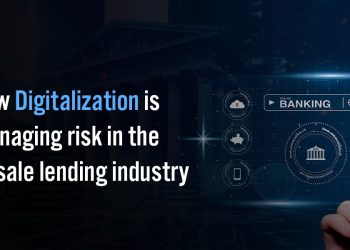FinTech organizations need to start taking security very seriously. They need to start planning and building strategies and effective ways to address privacy protection, data security, and most importantly cybersecurity. It is of absolute necessity because these particular threats importantly cybersecurity are expanding at an unprecedented manner and posing a significant danger to FinTech companies and the customers who are using these services. The growing dependency of numerous organizations on big data means that personal and proprietary data is possibly compromising and can be breached and accessed by malicious entities.
Another critical issue that a FinTech company which permits their data to be accessed and exposed to malicious use owing to growing hacking activities risks of its reputation being at stake increases. This directly leads to loss of customers who no longer have faith and trust in them. Hence, FinTech companies need to be extremely proactive in foreseeing issues that need attention and incorporating a robust and useful tool to prevent severe problems in the areas of cybersecurity, data security, and privacy protections.
Some of the most common cybersecurity mistakes that FinTech companies make include:
- Establishing authentication measures:
FinTech firms are going out of the way to offer an omnichannel user experience through numerous services. And, at the same time, consumers are mainly using mobile devices to access those services. Hence, FinTech firms need to establish authentication measures which are essential. These can be incorporated by making use of the ever-increasing use of fingerprint recognition, one-time passwords, and authentication apps that can offer an extra layer of protection.
- Increased usage of Encryption:
Encryption is the answer to most of the security issues, and it has been advised by experts that any and every amount of data needs to be encrypted which is transmitted in the firm or customers or any third-party entity. Encryption requires expert setup and particular protocols for how access can be granted.
- Merging security, easily:
FinTech firms include banking, insurance, lending, and numerous other transactions. Hence, the payer wants an uncomplicated and suitable method to make the payment. But the payee needs to make sure that the security measures have all taken them into consideration and that the payers can go ahead with their transactions without any issue.
- Usage of Public Cloud
It is without a doubt that using public cloud will only increase the risk of data leak be it any size of the organization. For best results, FinTech firms should acquire a private cloud server for data storage.
5.Educating the Employees
The employees of a FinTech organization should be briefed how sacred data is for an organization and not to give access to the same to any unauthorized person. The employees should also keep in mind that the cybercriminals can access data through social media websites or personal information being put in any or every website.
- Continuous monitoring
The FinTech organizations need to maintain constant control and vigilance so that all systems are safe from threats. There should be individuals or teams responsible for keeping an eye out for any potential risks and stop the same before it can impact the organization in any way.
- Keeping track of any new development
With each passing day, latest technology is being introduced, and hackers too are continuously developing themselves to break into those latest technological innovations. It is essential that FinTech organizations stay abreast with all the most recent developments in the areas of security, breaches and also how the same can be curbed.







